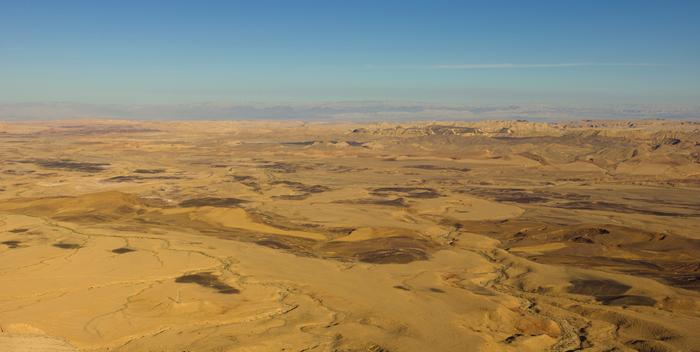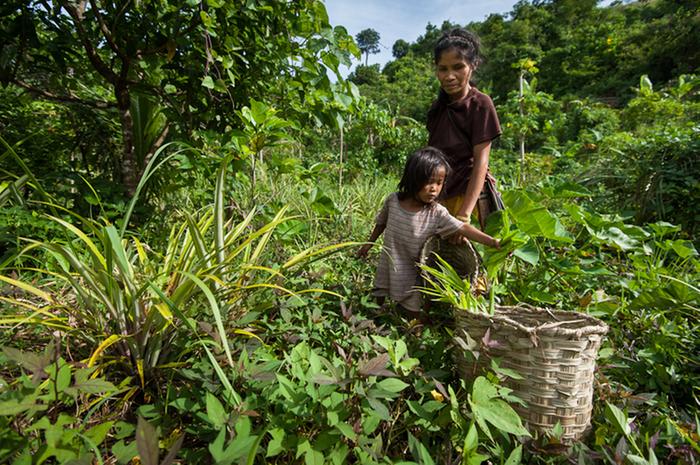
 1
1





 1
1








Dale Hodgins wrote:I don't think there is any inherent difference in the people in these various societies.
Dale Hodgins wrote:They all used what they had and whatever knowledge they had to control nature to whatever extent they chose. Some chose a less destructive model.
Dale Hodgins wrote:Unfortunately, I can't think of any period in history when an Agricultural Society was defeated by hunter gatherers or this transitional group. Agricultural societies have tended to overrun the others. It is still going on, with agriculture and other industries pushing deeper and deeper into wild lands.
Dale Hodgins wrote:I think it mostly has to do with population pressure. If I worked with the wild plants on my 7 1/2 acres, I would be able to get some percentage of my own diet from it. My place is mostly forest. If I mowed it all down and it were farmed intensively, it could probably produce enough food for 50 people. There would be little room for wildlife, as humans would occupy every corner.
Dale Hodgins wrote:Food forests represent a middle ground, where greater human population is possible, without excluding almost every other living creature.

 1
1




Living in Anjou , France,
For the many not for the few
http://www.permies.com/t/80/31583/projects/Permie-Pennies-France#330873




![Filename: Wien_Naturhistorisches_Museum-_Venus_von_Willendorf_by_Oke_WikiMedia.org.jpg
Description: Wien Naturhistorisches Museum Venus von Willendorf by Oke, WikiMedia.org [Thumbnail for Wien_Naturhistorisches_Museum-_Venus_von_Willendorf_by_Oke_WikiMedia.org.jpg]](/t/68050/a/52436/Wien_Naturhistorisches_Museum-_Venus_von_Willendorf_by_Oke_WikiMedia.org.jpg)








Living in Anjou , France,
For the many not for the few
http://www.permies.com/t/80/31583/projects/Permie-Pennies-France#330873




Living in Anjou , France,
For the many not for the few
http://www.permies.com/t/80/31583/projects/Permie-Pennies-France#330873




-A_principal_comunidade_dos_Kuikuro_by_Pedro_Biondi_WikiMedia.org.jpg)
![Filename: Terra_Preta_with_pottery_Cornell.edu.jpg
Description: Terra Preta with pottery Cornell.edu - CULTURE! [Thumbnail for Terra_Preta_with_pottery_Cornell.edu.jpg]](/t/68050/a/52462/Terra_Preta_with_pottery_Cornell.edu.jpg)
![Filename: AMAZON_-_Regular_tropical_soil_v._Terra_Preta_(man-made).jpg
Description: Regular tropical soil v. Terra Preta: man-made biochar soil [Thumbnail for AMAZON_-_Regular_tropical_soil_v._Terra_Preta_(man-made).jpg]](/t/68050/a/52464/AMAZON_-_Regular_tropical_soil_v._Terra_Preta_(man-made).jpg)




-writing_Hanunoo_script_on_a_fresh_piece_of_bamboo-_Philippines_2.jpg)











![Filename: Kumeyaay_men_with_child_wearing_basket_hats_in_front_of_an_ewaa-style_thatched_sheltery_Kumeyaay.info.jpg
Description: Kumeyaay men with child wearing basket hats in front of an ewaa-style thatched shelter [Thumbnail for Kumeyaay_men_with_child_wearing_basket_hats_in_front_of_an_ewaa-style_thatched_sheltery_Kumeyaay.info.jpg]](/t/68050/a/52621/Kumeyaay_men_with_child_wearing_basket_hats_in_front_of_an_ewaa-style_thatched_sheltery_Kumeyaay.info.jpg)

![Filename: Kumeyaay_Territory_Kumeyaay.info.jpg
Description: Kumeyaay Territory [Thumbnail for Kumeyaay_Territory_Kumeyaay.info.jpg]](/t/68050/a/52623/Kumeyaay_Territory_Kumeyaay.info.jpg)




He found one moonshine operation completely “off the grid.” The family had been farming the same land since the late 1600s. But this wasn’t just a moonshine operation. The family also raised pigs, goats, and sheep. And they grew countless crops for food. Everything was intertwined, and everything grew together.
“So, you didn’t have field peas as field peas; you’d have field peas and corn together in the same field. You didn’t grow just wheat; you’d grow wheat that was, say, thirty inches tall, and then you maybe grow rye above it that was seven feet tall; harvest the rye first, cut it high, then cut low for the wheat, and then they’d have clover down at the bottom, or winter peas, or whatever. No one thing was growing in a field.”
It was unlike anything Glenn had ever seen. “Like an idiot, I said to the father, ‘You can’t machine this.’ By that I meant you couldn’t run a tractor combine to harvest it. He looks at me real funny and says, ‘Why would we want to machine this? This is eating food.’ He wasn’t growing for animals. He was saying, ‘This is our kitchen food. This is what we eat.’ He would just as soon run a combine on his field as he would grow GM [genetically modified] corn. These people were frozen in time.”
Glenn ate lunch with them. “Holy crap! I mean, everything on the table—everything—had been grown and processed on the farm,” he said. “It was unbelievable food. Breads, butters, jams, hams, even wine—you name it. Oh, the best corn grits I’d ever eaten. Unreal, impeccable flavor, simply and honestly prepared. I sat there with the bootlegging family in the middle of this food paradise and felt in reality what my mother had always said about southern kitchen gardens, and about the food she grew up on.










|
I guess I've been abducted by space aliens. So unprofessional. They tried to probe me with this tiny ad:
Fed up of Silicon Valley Social Media? Join Retalk, the place of great conversation
http://retalk.com
|






